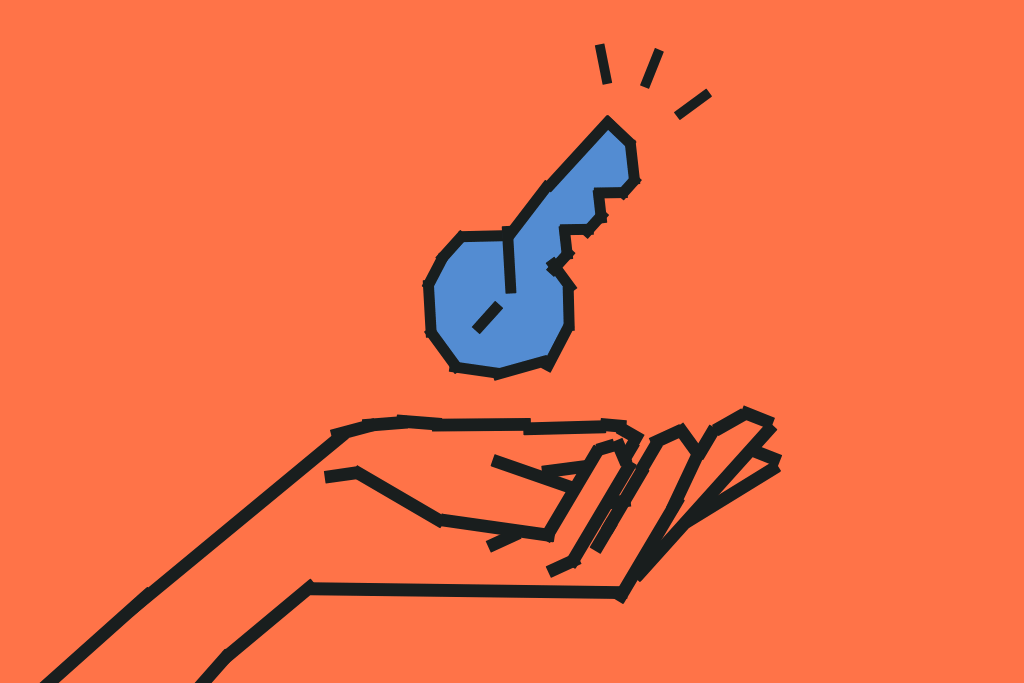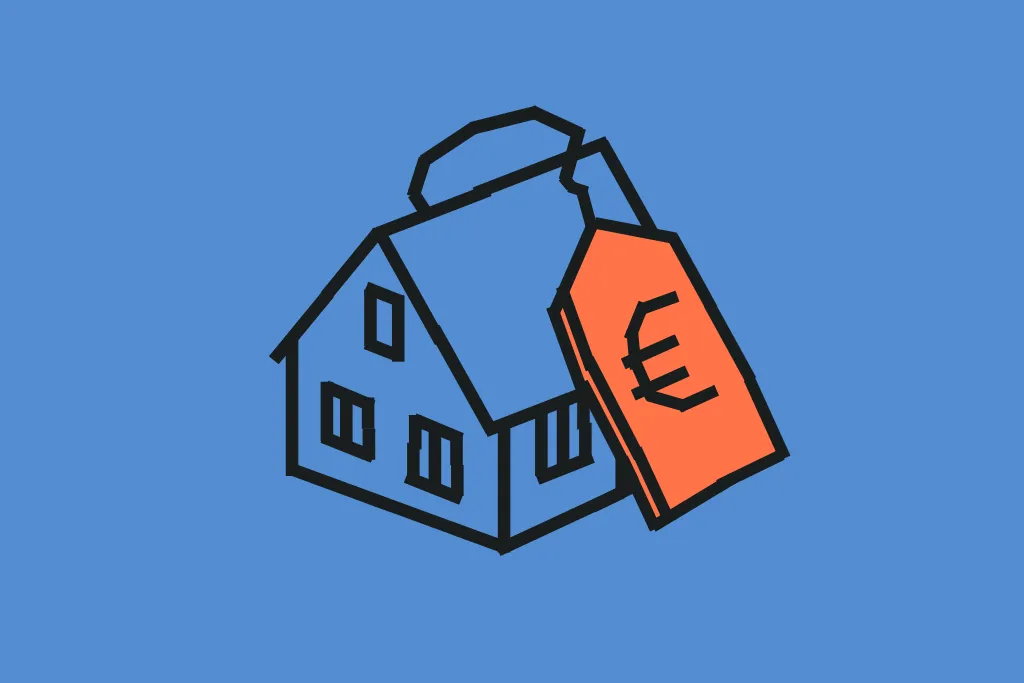What is a starter home buying scheme?
A starter scheme is a financial scheme specifically for people buying their first home. It gives you extra help to make the step to buying a home. The schemes help you as a starter in several ways. You pay less in purchase costs and can borrow just a little more.
These schemes are there for a reason. First-time buyers are struggling in the housing market. Houses are expensive and you can often borrow less than you need. These starter schemes give you just that push you need. Think of a starters loan, transfer tax exemption or a National Mortgage Guarantee (NHG). These benefits make a big difference for first-time buyers. You keep more money, your monthly expenses are lower and your chances of buying a home increase.
Want to know what start-up schemes are all available in 2025? Then take a look at the overview of start-up schemes. Here we have clearly listed all the schemes for you.
With homeup as your buying agent, you benefit from all these arrangements. Would you like to take advantage of this as a starter when buying a home? Register for free and let homeup help you with this step by step.
{{cta}}
Who are the start-up schemes for?
Starter schemes are specifically for people buying their first home. Are you over 18 and under 35? Then you often have a chance to benefit. There are specific conditions for the starter schemes for each scheme.
The following conditions apply to most schemes:
- You are over 18 and under 35.
- You have to live in the house yourself.
- You may not have bought a home before.
Want to see all the specific conditions for each start-up scheme? You can read more about this after the overview of all startup schemes in 2025.

Starter schemes buy home in 2025
In 2025, there are several starter schemes that make it easier for you as a starter to buy a home. From starter loans to starter exemptions, starter mortgages and more. These schemes help you get lower monthly expenses, borrow extra money and/or save taxes. Below is an overview of the main schemes, their benefits and conditions:
| Start-up scheme | Advantages | Terms |
|---|---|---|
| Starter Loan | ✔ Monthly expenses remain low. No interest or repayment in the first 3 years. | 18-35 years old. First home. Existing construction. Income below limit. |
| Starter mortgage | ✔ Lower interest rates and flexible terms especially for first-time buyers. | 18-35 years old. First home. Income below limit. Student debt counts in part. |
| Starter exemption transfer tax | ✔ No 2% transfer tax. You save thousands of dollars. | 18-35 years old. Housing under €525,000. Main residence. |
| NHG (National Mortgage Guarantee) | ✔ Lower interest rate. Extra security in case of residual debt or payment problems. | Max purchase €450,000 (€477,000 with preservation). Positive income. Main residence. |
| National Purchase Fund | ✔ Extra money without interest. Longer time to repay. | Low to middle income. Insufficient equity. |
| Koopgarant | ✔ Lower purchase price. Affordable home. Profit sharing when selling. | Principal residence. First home for sale. |
Wouldyou like toknow more about how you can benefit from these start-up schemes? Each scheme has specific benefits and conditions that will help you buy your first home. Read on for a detailed explanation of what each scheme entails and how to use it in 2025.

Starter Loan 2025
The starter loan is an additional loan on top of your first mortgage. You use this loan to bridge the difference between the purchase price of your home and the maximum amount you can borrow. The starters loan is intended for starters who are just short of buying a house. For example, due to a lower income, study debt or a short career.
Say you want to buy a €285,000 home, but based on your income you can get a maximum mortgage of €270,000. With a €15,000 start-up loan, you can still buy the house, which gives the start-up loan a big advantage for you.
You apply for a start-up loan through your municipality. Not every municipality offers this scheme. You can check on SVn whether the starters loan is available in your municipality. Is the loan offered there? Then the application goes through SVn (Stimuleringsfonds Volkshuisvesting).
Benefits of a start-up loan
A start-up loan has several advantages:
✔ You can buy a house that would otherwise be just too expensive for you.
✔ You pay no interest or principal for the first three years.
✔ Your monthly costs stay low in the early stages.
✔ You may sometimes borrow more than with just a mortgage.
Want to know all the pros and cons of a start-up loan? Then read this comprehensive article on the pros and cons of a starter loan.
What are the conditions?
The conditions for a starter loan vary by municipality. But these are the conditions found in most municipalities:
- You are buying an existing home, not a new construction.
- You are between the ages of 18 and 35.
- You buy your first home.
- Your income is below a set limit.
- You first borrow the maximum amount from the mortgage lender.
- The purchase price of the home remains below a certain amount.
After three years, a reassessment takes place. Based on the reassessment, you do pay interest and repayment from then on. Would you like to know exactly what the starters loan entails and what the conditions are? You can read all about it in our article on the starters loan.

Starter Mortgage 2025
A starter mortgage is a form of mortgage loan specifically designed for first-time buyers in the housing market. This 2025 starter mortgage often has more favorable terms than a regular mortgage. Thus, it helps you buy a new home more easily, even if you are just starting work or have student debt.
When do you qualify for starter mortgage?
To qualify for a starter mortgage, you must meet a few conditions. You must:
- Be between the ages of 18 and 35.
- Buying your first home (i.e., you may not have owned a home before).
- Have a certain income that is not too high (this limit varies by mortgage lender).
Additional conditions may also apply, such as about your form of contract or use of your own money. Your student debt also often plays a role. If it is too high, it can affect the amount you can borrow.
What are the benefits of a starter mortgage?
The starter mortgage offers you several advantages:
✔ You benefit from a lower interest rate in the first few years.
✔ Your monthly costs are therefore extra low in the beginning.
✔ You can often borrow more than with a standard mortgage.
✔ You need less of your own money to buy a home.
✔ The interest is usually tax-deductible, which gives you a tax advantage.
✔ You choose an appropriate fixed-interest period, so you know where you stand.
Sometimes there is a maximum home purchase price for which you may apply for a starter mortgage. That amount varies by provider.
Want to know if a 2025 starter mortgage is right for you? Get advice from a mortgage broker or have homeup look it over with you.

Starter exemption transfer tax
The starter exemption transfer tax ensures that you pay no tax when you buy your first home, provided that this home is not more expensive than €525,000 in 2025. This can save you up to 2% on the purchase price of your home.
Conditions of transfer tax exemption
To use the start-up exemption, you must meet the following conditions:
- You are between the ages of 18 and 35 at the time of purchase.
- You buy a home that you will occupy yourself (primary residence).
- The property has a value of up to €525,000.
- You did not receive the exemption before.
If you buy with someone else, the exemption applies only to the buyer who is under 35 years of age. The other person pays 2% tax on their share. It does not matter if it is your first home; the important thing is that you will live in the home yourself and that the value is below the limit.
Advantages and disadvantages of the exemption
✔ You save 2% on the purchase price of your home.
✔ You pay no transfer tax when you buy your home.
✔ It makes it easier for first-time buyers to buy a home.
✗ The exemption only applies to homes up to €525,000.
✗ If you are not going to live in the home yourself, you will pay tax (10.4%).
✗ The exemption only applies once, so you can only use it once.
Want to know more about the transfer tax exemption and whether you qualify? Then read this comprehensive article on the 2025 transfer tax exemption. You can also turn to homeup as a buying agent for advice.

National Mortgage Guarantee (NHG) 2025
The National Mortgage Guarantee (NHG) is a safety net for homebuyers. If you have NHG, you can count on protection if you run into financial difficulties. This could include unemployment, divorce or other unexpected situations.
In 2025, NHG applies to homes with a maximum value of €450,000. If you make the home more sustainable, the value may even be €477,000. With NHG, you can get more security when buying your home.
What protection does NHG offer?
NHG provides protection against residual debt if your home is worth less than the mortgage. This can help you keep your home if you run into temporary trouble. The guarantee also allows you to pay lower mortgage interest rates because the risks are lower for the lender. This often keeps your monthly expenses lower in the early years.
When do you qualify for NHG?
You can apply for NHG if you meet the following conditions:
- The purchase price of the home does not exceed €450,000 (€477,000 with preservation).
- You have a mortgage broker doing the application for you.
- You have a positive income and a good credit rating.
- You want to use your home as your primary residence.
If you meet these conditions, you can take advantage of the benefits of NHG, such as lower interest rates and more security.
Want to know if NHG is for you and exactly what the limit in 2025 means? Read these two articles in detail about what NHG is and the NHG limit in 2025.

National purchasing fund 2025
The National Purchase Fund is a scheme that helps you buy a home if you can't quite get the financing. The fund offers an interest-free loan that you can use to bridge the gap between the maximum mortgage you can get and the actual purchase price of the home.
Who is the National Purchase Fund for?
The National Purchase Fund is designed for first-time homebuyers who qualify for an additional loan. The scheme is aimed specifically at people who want to borrow just a little more than is possible with their mortgage.
This fund is intended for:
- Low- to middle-income starters.
- Startups that do not have enough equity to bridge the gap themselves.
Why National Buy Fund for Startups?
The National Purchase Fund is interesting because it gives you the chance to buy a home you would not otherwise be able to afford. You get extra money with no interest and a longer term to pay it back. This makes it easier for you as a starter to get into the housing market without having to worry about high interest rates.
So the fund offers a solution to financial barriers that many first-time buyers face. It can help you buy your dream home even if you just can't borrow enough through the regular mortgage.

Koopgarant 2025
Koopgarant is a scheme that helps you buy a home by offering a discount on the purchase price. This is made possible by housing associations. You buy a home at a lower price, but share the profit when you sell with the housing corporation. In return, you get an affordable home for sale.
Conditions and procedure of koopgarant
Koopgarant works as follows: you buy a home below the market value, because the housing corporation keeps part of the value. If you sell the home in the future, the housing corporation gets a portion of the profit. This is stipulated in an agreement. You pay less for the home, but you also have to take into account the conditions in the agreement when you sell.
The conditions for Koopgarant may vary by housing association, but in general:
- The home must serve as the principal residence.
- You have no excess value after selling. The housing corporation shares in the profits if the home has increased in value.
- First-time homebuyer: You are eligible for Koopgarant if you are a first-time homebuyer.
Who offers Koopgarant?
Koopgarant is offered by housing corporations operating in different regions. These corporations offer homes covered by the scheme. The offer varies by region and by housing corporation, so it is important to check with housing corporations in your area to see if they offer Koopgarant homes.
When is Koopgarant beneficial for first-time buyers?
Koopgarant is especially beneficial for first-time buyers who would otherwise have a harder time buying a home. Because the purchase price is lower than the market value, you need less mortgage. This makes it possible for many first-time buyers to buy a home that would otherwise be out of their reach.
In addition, Koopgarant provides an affordable option for people who want to live in an existing building, but the supply of cheaper housing in the region is limited.

Get the most out of start-up schemes
Buying your first home can be complicated, especially with all the schemes you can use. To get the most out of the starter schemes, it's smart to hire a buying agent.
With a buying agent, such as homeup:
- Get tailored advice on which schemes you can use.
- Is made sure you don't miss out on start-up schemes, such as the start-up loan or start-up exemption.
- Is everything when buying a house taken care of for you.
With guidance from a buying agent, you get the best deals and don't pay more than necessary.
Want to take advantage of all the start-up schemes? Register for free and let homeup guide you as a buying agent.
{{cta}}
Frequently asked questions about starter home buying scheme
Are you about to buy a house as a starter? Then of course you want to know what schemes there are and how you can take advantage of them. In these FAQs we provide answers to frequently asked questions, so you can be well prepared to take advantage of all the starter benefits in 2025.
What is the new scheme for first-time home buyers?
The new regulation for first-time buyers in 2025 makes it easier to buy a home. You can take advantage of starter loans, starter exemptions and lower interest rates. This will help you lower the barrier to buying your first home and keep monthly costs affordable.
How can first-time buyers still buy a home?
Starters can buy a home by taking advantage of start-up schemes such as the start-up loan and the start-up transfer tax exemption. In addition, it helps to arrange your financing properly through a mortgage broker. This ensures you don't pay more than necessary and your monthly expenses stay within your budget.
What schemes are there for starters?
Startups can benefit from the following schemes in 2025:
- Starter Loan. The Starter Loan provides an additional loan to bridge the difference between your mortgage and the actual purchase price of the home.
- Starter Mortgage. This gives starters more favorable terms when buying their first home. For example, consider a lower interest rate specifically for first-time buyers.
- Starter exemption transfer tax. You pay no transfer tax for homes up to €525,000.
- NHG (National Mortgage Guarantee). NHG offers protection against residual debt and provides lower interest rates on your mortgage.
- National Purchase Fund. The National Buy Fund offers an interest-free loan that helps you buy a home even if you're just short of financing.
- Koopgarant. This allows you to buy a home at a lower price, with partial profit sharing when you sell. It is offered by housing associations and is designed for first-time buyers who want to buy their first home as their primary residence.
How much money should you have as a starter to buy a house?
The amount you need as a starter depends on your income, the home you want to buy and your own savings. In any case, you will need your own money for the buyer's fees. This is usually 2% to 3% of the purchase price. Most first-time buyers can buy their first home with a maximum mortgage. However, this depends on their income and the mortgage lender.

{{vragen}}




